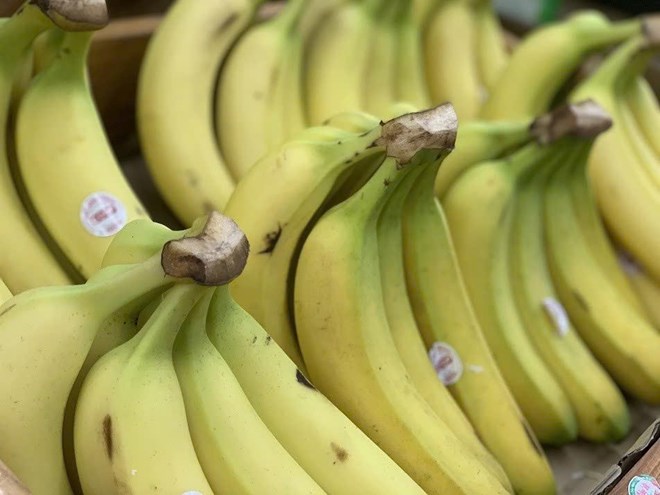Watermelon
Watermelon can support sleep thanks to its rich content of compounds such as citrulline, magnesium and water. Citrulline helps improve blood circulation, relax the body and reduce blood pressure, thereby easily falling asleep. Magnesium helps calm nerves and muscles, reduce stress and anxiety - factors that cause sleep disorders. More than 90% of the weight of watermelon is water, helping the body stay hydrated and limit nighttime waking.
However, you should eat watermelon in moderation before bed to avoid bloating due to high water and sugar levels. According to the American Journal of Clinical Nutrition, fruits rich in water and nutrients such as watermelon, when consumed at the right time, can help improve sleep quality.
Bananas
According to Stephanie Bieler, a nutritionist at the Swiss Dietetic Association (SSN), bananas contain fiber, potassium, vitamin B6, vitamin C and healthy phytonutrients.

In addition, bananas also contain tryptophan, which when entering the body will be converted into melatonin, a hormone that can cause sleepiness. Therefore, eating bananas regularly can help people fall asleep more easily.
Pineapple
A 2013 study conducted by Nutjaree Pratheepawanit Johns and colleagues shows that pineapple can help improve sleep quality. In the study, eating pineapple increased melatonin levels in the body by up to 266% - much higher than bananas (180%) and oranges (47%).
Nutritionist Mandell explains that melatonin is a hormone that helps regulate circadian rhythms and causes sleepiness. As we age, the body's production of melatonin decreases, so supplementation from foods like pineapple can be very helpful.
He recommends eating pineapple after dinner to support sleep without causing bloating. In addition, pineapple has many other benefits such as enhancing digestion, immunity, protecting the heart and beautifying the skin.











